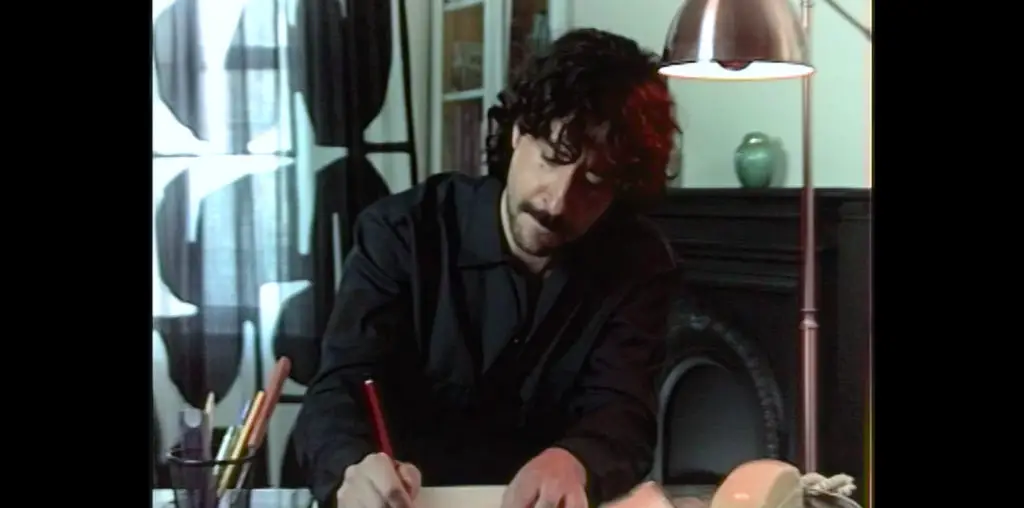
CRITIC DOCTOR EXAMINES: Ella Taylor (laweekly.com), Leonard Maltin (leonardmaltin.com), Chris Barsanti (filmthreat.com), Roger Ebert (suntimes.com), Berge Garabedian (joblo.com), Scott Tobia (theonionavclub.com), Peter Sobczynski (criticdoctor.com), William Arnold (seattlepi.com)
“Master and Commander” is a pretty good movie about a ship at sea, but I cannot understand the love fest some critics are having with this film. It’s making me seasick!
The movie is about one of the best fighting sea captains alive, Lucky Jack Aubrey (Russell Crowe). He is master of the British battle ship – the Surprise. The year is 1805 and Aubrey commands his crew to hunt down a mysterious French phantom ship after being attacked. It has twice the fighting capacity and crew of the Surprise. This all sounds daring and exciting, but we find ourselves watching a long, drawn out story with a dud ending.
Ella Taylor (laweekly.com) said, “I’d love to be able to say that ‘Master and Commander’ will fail only because it is a good old-fashioned action-adventure with no whiz-bang special effects. In truth it will fail because it is a dull and boring film.”
I, too, thought the film was boring – but not a failure. Unfortunately, the movie’s strong points sink in deep, deadly waters of time (the film was way too long!). It sails on for 2 hours and 20 minutes.
Leonard Maltin (leonardmaltin.com) said, “Director Peter Weir and his crew make us feel as if we’re actually sailing with Crowe in the early 1800s. The film has a strong, vital sense of time and place, in both the battle scenes (which are spectacular) and in the depiction of daily life at sea.”
I agree, Leonard. The cinematography was outstanding and the battles at sea make you feel like you are right in the middle of all the action.
Chris Barsanti (filmthreat.com) said, “The battles, when they occur, are crashing, smashing, symphonies of destruction, and rendered all the more intense by the immaculate sound design which not only gets one uncomfortably close to those cannonballs blasting through solid oak and sailor’s bodies, but makes one very aware of just how delicate these vessels are.”
The depiction of daily life at sea, however, was so realistic, Chris, it showed us just how boring it can be floating on a vessel for weeks on end. The story isn’t important enough to justify this film’s length – especially when there are only two battle scenes and when combined – last under 20 minutes! While the battle scenes are strong points in the film (though short-changed), the character development is another asset (but overdone).
Roger Ebert (suntimes.com) claims the movie is “as good or better as any sea journey ever filmed” and said, “This is not a movie that depends on body counts for its impact, but on the nature of life on board such a ship. Maturin and Aubrey sometimes relax by playing classical duets, the captain on violin, the doctor on cello, and this is not an affectation but a reflection of their well-rounded backgrounds.”
These are colorful moments, indeed, and add layers to the characters, but the ship keeps sailing and sailing and sailing and pretty soon this begins to wear on you – hoping the ship will find land and soon. When it does finally anchor by an island, we go on a pre-Darwinian field trip. Oh, boy!
Berge Garabedian (joblo.com) said, “And if Crowe’s uninteresting character wasn’t the whole ball of wax, consider Paul Bettany as the doctor/naturalist whose apparent hobby for collecting newfound insects takes over chunks of the film. Is this supposed to engage me?”
We could have done without the beetles and lizards, Joblo. But this film would not have lasted 10 minutes without Russell Crowe – period. He simply saved this sea story from becoming neighbors with the Titanic. Scott Tobia (theonionavclub.com) said, “Crowe carries the film with the rare combination of charisma and brute masculinity that has made him a star.” Peter Sobczynski (criticdoctor.com) also said, “Russell Crowe is one of the most fearless actors of our time and one of the few suited to play outsized characters like Captain Aubrey.”
If only Russell could have saved that last battle scene. It’s a huge disappointment. You see, when the phantom ship first attacks the Surprise, I was intrigued by the mysterious man who commands that ship (his face never revealed until the end). When the second confrontation arrived (after two hours), I was expecting (eagerly) both captains to meet face to face and battle it out. It never happens. For the love of God!
William Arnold (seattlepi.com) summed the movie up best: “Yet it’s by no means a write-off. Weir fills the screen with enough perfect storms, blistering broadsides and evocative period detail to make the journey a fascinating voyage back in time; and Crowe could hardly be more engaging as its Horatio Hornblower of a British sea captain hero.”
Johnny Depp’s “Pirates of the Caribbean” was much more fun to watch, but “Master and Commander” will certainly transport you back in time to appreciate the men who went through battles at sea – and the majestic waters they endured.
You’ll also appreciate sleep.
